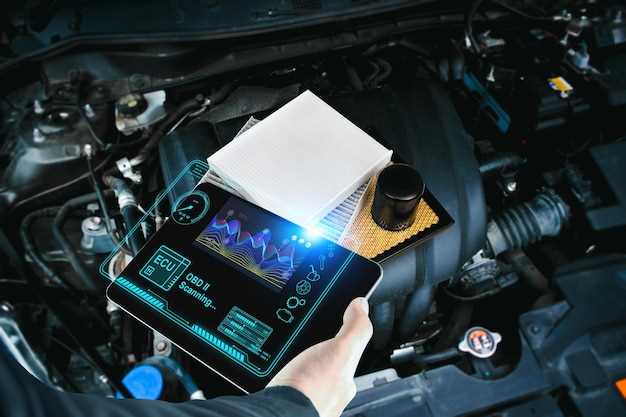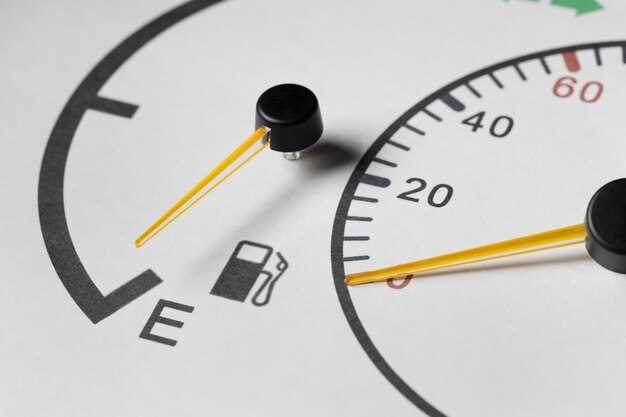

When it comes to tuning diesel vehicles, many enthusiasts focus on enhancing performance and power. However, one crucial aspect that often becomes a challenge is meeting emissions standards. With stricter regulations in place, passing emissions tests can be particularly difficult for modified vehicles. This article will provide valuable tips that can help you navigate the emissions testing process successfully.
First and foremost, understanding your local emissions regulations is essential. Different regions have varying requirements regarding allowable emissions levels and testing procedures. Being informed about these regulations will not only guide you in your tuning decisions but also help you prepare your vehicle for the emissions test.
Another vital aspect is the selection of appropriate tuning options and aftermarket parts. While performance chips and exhaust modifications can significantly boost power, they can also increase harmful emissions. It’s important to choose tuning solutions that consider emissions compliance. By focusing on eco-friendly tuning methods, you can enhance performance while still adhering to required standards.
Additionally, routine maintenance and proper vehicle upkeep play a critical role in passing emissions tests. Ensuring your diesel engine is in optimal condition, including regular oil changes, air filter replacements, and fuel system cleaning, can minimize emissions and improve your chances of passing the test. Taking these proactive steps will not only benefit your vehicle’s performance but also ensure it meets environmental standards.
Understanding Emissions Standards and Regulations for Diesel Tuners

Emissions standards and regulations for diesel vehicles have become increasingly stringent over the years, particularly as governments strive to reduce air pollution and combat climate change. For diesel tuners, understanding these standards is crucial to ensuring that modified vehicles can pass emissions tests while still delivering enhanced performance.
Different regions have established their own emissions regulations, such as the EPA in the United States and Euro standards in Europe. These regulations dictate the allowable limits for pollutants like nitrogen oxides (NOx), particulate matter (PM), and hydrocarbons (HC). Tuners must be aware of these limits to tailor their modifications accordingly, ensuring compliance without compromising engine performance.
Many diesel tuners enhance engine efficiency through modifications such as remapping the ECU, installing performance exhaust systems, or upgrading turbochargers. However, it’s vital to implement these changes in a way that does not exceed the emissions thresholds set by law. This requires a thorough understanding of how each modification impacts emissions output and a commitment to using components that comply with regulatory standards.
In addition, some jurisdictions require emissions testing for modified vehicles to verify that they meet compliance levels. Tuned diesel vehicles may benefit from specific tuning strategies that maintain power while reducing emissions. For example, using higher-quality fuels and optimizing the fuel-to-air ratio can significantly lower harmful emissions during tests.
Certain aftermarket parts, such as catalytic converters and diesel particulate filters (DPFs), are designed to help vehicles pass emissions tests. Diesel tuners should consider the compatibility of these components with their modifications and ensure that any tuning does not disable or circumvent essential emissions control systems.
Ultimately, staying informed about the evolving emissions regulations, understanding the implications of vehicle tuning, and choosing compliant components are vital steps for diesel tuners. This proactive approach not only helps in passing emissions tests but also promotes environmental responsibility and enhances the longevity of tuned vehicles.
Adjustments and Modifications to Enhance Emissions Compliance

To optimize a tuned diesel vehicle for emissions compliance, several key adjustments and modifications can be implemented. These changes not only help in passing emissions tests but also ensure that the vehicle operates efficiently and remains environmentally friendly.
One of the primary modifications is the installation of a high-quality diesel particulate filter (DPF). This component is crucial for reducing soot and particulate emissions. Upgrading to a more efficient DPF can significantly lower emissions, making it easier to pass testing regulations.
Another important adjustment involves remapping the engine control unit (ECU). Fine-tuning the ECU settings allows for better fuel efficiency and lower emissions. Ensuring the air-fuel mixture is optimal can reduce the levels of harmful gases produced during combustion, aiding in compliance during emissions tests.
Incorporating a selective catalytic reduction (SCR) system can further enhance emissions control. This technology uses a urea solution to convert harmful nitrogen oxides (NOx) into harmless nitrogen and water, thereby lowering NOx emissions significantly. Vehicles equipped with SCR systems are more likely to meet stringent emissions standards.
Regular maintenance is essential for emissions compliance. Keeping the fuel injection system clean and ensuring the correct operation of exhaust gas recirculation (EGR) valves helps maintain low emissions levels. A well-maintained vehicle is less likely to encounter issues during emissions testing.
Finally, consider investing in aftermarket emissions-compliant tuning software. These tools are designed specifically to optimize diesel engines for emissions tests without sacrificing performance. Utilizing such software can help balance the need for power with the requirement to meet emissions standards.
Pre-Test Preparation Steps to Improve Test Results
Preparing your tuned diesel vehicle for an emissions test requires careful planning and attention to detail. Follow these steps to enhance your chances of passing the emissions test:
-
Check Engine Codes
Start by using an OBD-II scanner to check for any error codes. If your vehicle is displaying any check engine lights, address these issues before the test.
-
Inspect Exhaust Components
Examine the exhaust system for leaks, especially in the catalytic converter and muffler. Ensure these components are functioning properly, as they play a crucial role in minimizing emissions.
-
Update Tuning Settings
If your vehicle has undergone tuning, consider adjusting the performance settings for the emissions test. Many tuning software options allow you to switch to a more emissions-friendly mode temporarily.
-
Schedule a Maintenance Check
Before the test, have a mechanic perform a thorough maintenance check. They can assess the condition of the fuel injectors, air filters, and other emissions-related components.
-
Use Quality Fuel
Fill your tank with high-quality diesel fuel. Look for fuel that contains additives designed to reduce emissions, which can improve combustion and lower harmful output.
-
Perform a Pre-Test Drive
Take your vehicle for a longer drive before the test to ensure that the engine reaches optimal operating temperature. This helps in burning off accumulated soot and can improve test results.
-
Check and Clean the EGR System
A clean Exhaust Gas Recirculation (EGR) system can significantly impact emissions. Clean any carbon buildup and ensure it’s functioning correctly to reduce the nitrogen oxides produced during combustion.
By following these pre-test preparation steps, you can optimize your tuned diesel vehicle for the emissions test and increase your likelihood of passing successfully.







